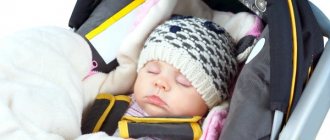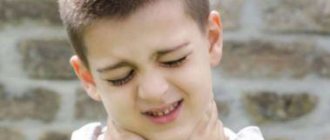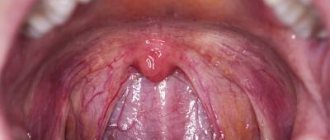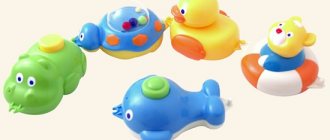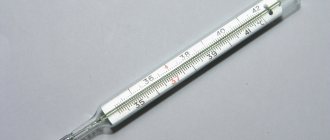If a child coughs to the point of vomiting, how to treat it? Sooner or later, many parents are faced with this issue, because this course is characteristic of several common diseases at once. At the same time, you need to understand that it is the cause that needs to be treated, not the consequences, therefore, if a child has a fever, cough, or vomiting, it is necessary to consult a doctor for a timely diagnosis and, based on the information received, take measures to restore health. Attempts to self-medicate can lead to complications, which will be much more difficult to eliminate than the original pathology.
Child: in danger or not?
Modern children are not flowers growing, like that rose, under a glass cover. They communicate with each other and explore the world, use public places and constantly encounter a variety of alien microorganisms. In childhood, the immune system is quite weak, constantly adapting to the characteristics of the environment, and therefore is more susceptible to the aggressive influence of various factors. Therefore, a dry cough leading to vomiting is observed much more often in a child than in an adult.
Usually, a cough and runny nose indicate a cold, since these are protective reactions of the body, clearing the tissues of mucus and dust. Coughing usually does not cause concern, but coughing attacks with vomiting in a child often become a reason to panic.
Vomiting when coughing in a child: causes
Coughing to the point of vomiting in children is not uncommon, but the appearance of such a symptom alarms parents and forces them to consult a pediatrician.
Various psychogenic and somatic diseases of infectious and chronic etiology can provoke the gag reflex.
In most cases, the symptom is transient and does not significantly affect the baby’s well-being or lead to dehydration.
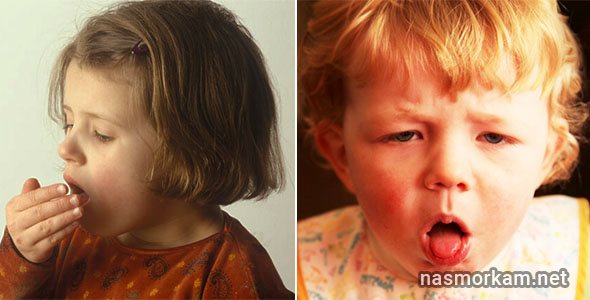
A very strong cough to the point of vomiting in a child can occur with:
- banal ARVI, in which there is increased production of mucus in the nasopharynx and bronchi;
- acute laryngitis, which is characterized by a barking cough in a child with vomiting, shortness of breath and hoarseness (most often the disease is caused by influenza and parainfluenza viruses);
- parawhooping cough, whooping cough - acute bacterial infections affecting the respiratory tract;
- the presence of a foreign body in the lumen of the respiratory tract, in particular the larynx, bronchi;
- pathology of the endocrine (diffuse goiter - an enlarged thyroid gland compresses the trachea, esophagus; thymomegaly) or digestive systems (in the case of gastroesophageal reflux disease, frequent coughing in children sometimes occurs with a gag reflex);
- psychological problems, when the child often becomes hysterical and vomits from coughing;
- damage to the structures of the central nervous system (tumors, disturbances in cerebrospinal fluid dynamics, such as with hydrocephalus, hemorrhage, etc.).
With ARVI, the baby most often coughs up mucus, which accumulates in large volumes in the bronchi and upper parts of the respiratory system.
This is mainly due to self-blocking of the cough reflex, the inability to promptly get rid of excess mucus and sputum, which irritate the receptors on the back wall of the pharynx and the root of the tongue.
The most common cause of a child vomiting when coughing is whooping cough.
The increase in the incidence of this infection is explained by the high contagiousness of the pathogen (Bordetella pertusis) and non-compliance with the vaccination schedule (frequent medical appointments, parents’ refusal of routine vaccination).
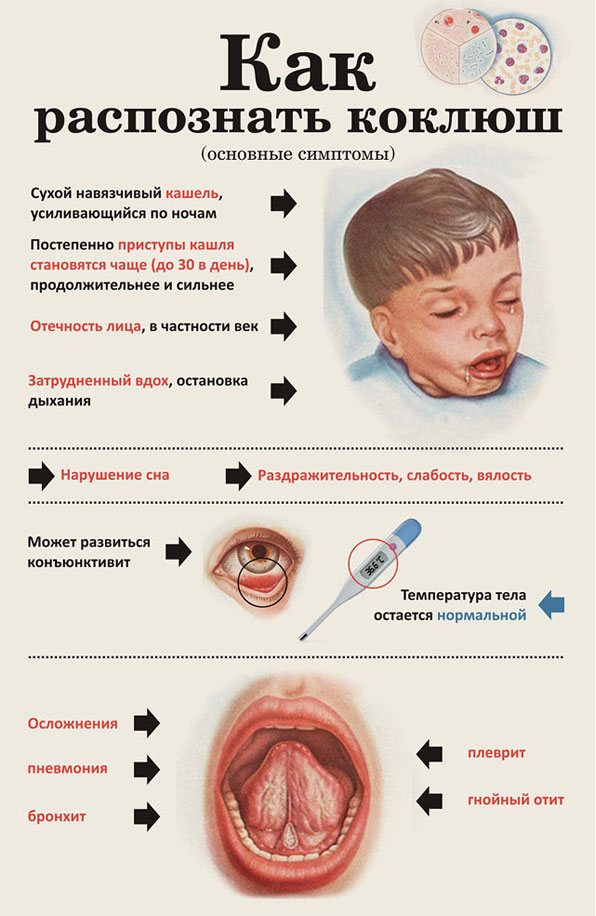
Penetrating into the child's body through the upper respiratory tract, the bacterium releases toxins and active substances that create a dominant cough in the brain, which is very difficult to interrupt even after recovery. Therefore, paroxysmal cough with vomiting is a pathognomonic symptom for pertussis infection.
Where did the trouble come from?
In childhood, such a severe cough, which is accompanied by gagging, is observed quite often. At a young age, the body is not yet developed enough, and the organs responsible for the cough reflex are located quite close to those that provoke vomiting. These organs are interconnected, and if a child has a coughing attack leading to vomiting, there is probably nothing wrong with it - it’s just the specifics of physiology. However, there is a possibility of a more serious illness. To rule it out or confirm concerns, you need to seek help from a qualified pediatrician.
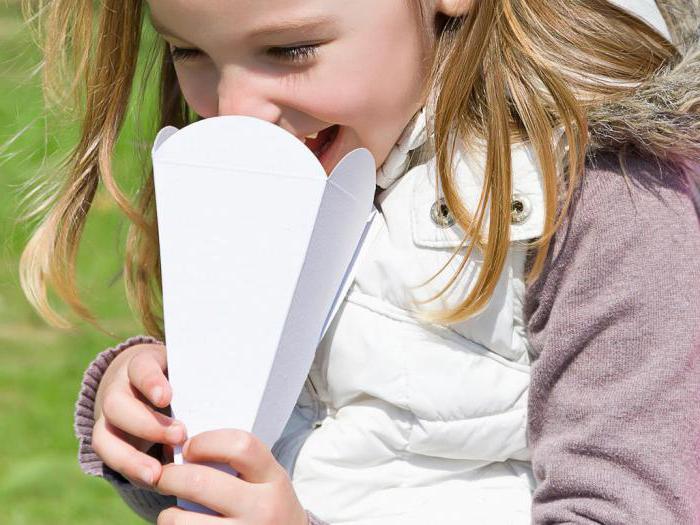
The greatest concern should be caused by the situation when such attacks occur frequently, are repeated with small frequency, and persist for a long time. It is known that a child’s severe cough at night before vomiting can indicate the presence of a serious illness. Which one will be determined by the doctor based on information from the tests.
Possible causes of the problem
Most often, cough occurs in the following situations.
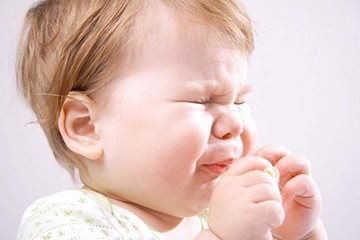
- Entry of a foreign body. If a child suddenly starts coughing, this option should be ruled out first, since a foreign body in the respiratory tract can cost a person his life. Symptoms of such a situation are coughing, vomiting, redness of the facial skin, fear of the child, and in cases where the airways are completely blocked - lack of breathing, redness or bluishness of the facial skin. This situation requires immediate intervention. The child should be placed on his stomach, so that the head is lower than the body, and the back should be tapped to push out the object that is preventing breathing.
- Whooping cough. Infection. To prevent it, vaccination is carried out, but sometimes it turns out to be ineffective. The average duration of the disease is six weeks. Two of them are the incubation period. Afterwards a severe cough begins, which gets worse at night. During a coughing attack, the baby sticks out his tongue and chokes. Often this cough causes mucus production and vomiting. At the first signs of the disease, you should consult a doctor for tests and treatment.
- ARVI. With these diseases, there is an increase in body temperature, pallor, cough, and an abundance of sputum in the nasopharynx. The cough gets worse if small children do not know how to clear mucus from their nose and inhale it. Therefore, you should teach your child to use a handkerchief. The doctor will prescribe the treatment. Humidifying the air in your apartment will help speed up your recovery.
- Dry air in the room can cause a strong cough even in a healthy child. It dries out the mucous membranes of the nasopharynx and causes a sore throat.
- Breathing through the mouth has the same effect. Overdrying of the mucous membranes and slow salivation cause irritation of the receptors and coughing.
Whooping cough
This is an infectious disease that goes away quite easily with preventive vaccination. At first, the symptoms are mild, so whooping cough is mistaken for a common cold. When the incubation period of the infection comes to an end, the patient's health condition deteriorates sharply. The most striking manifestation of whooping cough is a suffocating, severe cough in a child to the point of vomiting, accompanied by convulsions. Tears appear in the eyes, the face turns red, the body tenses, the tongue reflexively sticks out.
Such a strong cough in a child to the point of vomiting often comes at night; in severe cases, several attacks can occur in one night, each of which ends with a peculiar sound.
What to do?
Anti-cough medications for whooping cough do not show effectiveness. If there is an assumption that the reason that a child has a strong dry cough to the point of vomiting is whooping cough, it is necessary to urgently make an appointment with a specialist. In laboratory conditions, mucus is cultured and information is taken from the blood of a small patient.
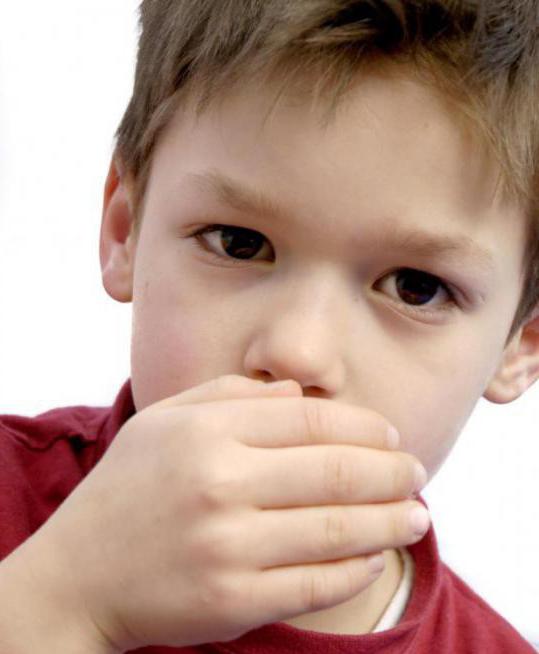
It is necessary to understand that coughing attacks during whooping cough are not only unpleasant, but also dangerous, since the body’s tissues do not receive oxygen during such “attacks” of the disease. First of all, the nervous system suffers greatly from this. The disease torments the little man and deprives him of strength, and the immune system is too weak to give any effective response. Self-medication for whooping cough can lead to numerous complications; it is not practiced at home; constant medical supervision is required. So, if a child coughs to the point of vomiting, what should you do? First of all, consult a doctor to identify the exact cause.
Child vomits while coughing
Up to a certain point, it is difficult for parents to understand how a child can vomit while coughing. It turns out that such cases are not exceptional.
Vomiting can begin with either a wet or dry cough. It will continue until parents take measures aimed not even at eliminating the cough, but at treating its cause.
You should call emergency help for your baby:
- with continuous vomiting;
- if at the same time blood or foam is released from the mouth;
- when the temperature rises sharply to febrile levels or more;
- when the nasolabial triangle turns blue;
- if suffocation and pallor of the skin occur;
- the child lost consciousness.
If you do not find any of the above signs in your baby, then most likely vomiting is not dangerous for him. You should consult a doctor after the attack has stopped.
Bronchitis
This disease is quite common and usually accompanies a cold as a complication if the primary cause has not been treated. The most favorable conditions are changing seasons, high humidity, and temperature changes. Often, coughing and vomiting in a child without fever are observed if the baby spent some time in a drafty room. Hardening and multi-layered windproof clothing, unfortunately, cannot prevent the onset of a cold.
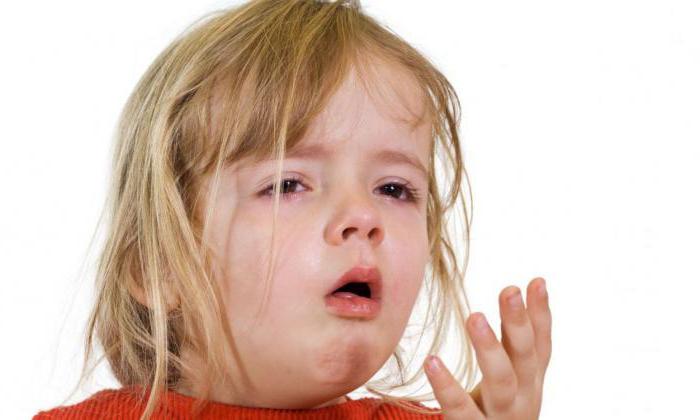
Bronchitis is one of the most difficult complications of a cold. The fight against this disease takes a long time. If you start it, there is a possibility that the form will become chronic. If the problem is bronchitis and a child coughs to the point of vomiting, what should you do? If possible, you should immediately contact your local pediatrician. Each next attack is usually accompanied not only by vomiting, but also by shortness of breath, and when the sputum is discharged, the baby becomes better.
Cough treatment
Therapeutic measures to eliminate cough should be selected individually for each child. The algorithm of action will depend on what exactly caused the symptom. In addition to folk remedies, antitussive or expectorant medications, the patient is prescribed basic treatment.
In case of a viral infection (pharyngitis, nasopharyngitis, tracheitis), it is enough to maintain the correct regimen. It involves drinking plenty of fluids, rest, and regular ventilation of the room where the patient is. Symptomatic therapy will help alleviate the course of the disease.
With strong immunity, the disease will go away on its own within a week. If the baby’s body cannot cope, then doctors use antiviral drugs and immunomodulators: Viferon, Kipferon suppositories, Tsitovir, Aflubin suspensions, Isoprinosine and Rimantadine tablets.
Bacterial diseases (bronchitis, pneumonia, tonsillitis) require the use of antibiotics. Even a strong immune system cannot cope without these drugs. If you refuse treatment, the disease may become chronic, and the child’s cough, vomiting, and fever will not go away on their own.
Penicillin antibiotics are usually prescribed for children: Amoxiclav, Flemoxin, Penicillin.
If microorganisms have resistance to them, then cephalosporins (Ceftriaxone, Cephalexin) or macrolides (Sumamed, Azitrus) may be recommended.
All antibacterial agents must be prescribed by a doctor after laboratory tests.
Inhalation is very effective in treating cough. Alkaline solutions (soda or mineral water) are used as medicine; bronchodilators and antispasmodics (Pulmicort, Berodual); saline solutions.
If necessary, inhalation is carried out with antibacterial or antiviral agents (Miramistin, Relenza). Read more about inhalation at home and choosing a drug here.
Bronchitis: can’t be started
If vomiting in children when coughing is caused by bronchitis, this situation should be given special attention. The pathology is associated with bacterial or viral damage to the body, and each option requires a specific therapeutic approach. If the reason why children vomit when coughing is viral bronchitis, with the right treatment, the disease will completely go away in just a week. But with the bacterial form, therapy will take a much longer period and will be more difficult.
If vomiting in children when coughing is caused by viral bronchitis, the use of antimicrobial drugs will not give the desired result, but will significantly weaken the immune system. But with bronchitis caused by microbial infections, it is antibiotics that come to the rescue, and of the group that is effective against the pathogen found in the child. If vomiting in children when coughing is caused by bronchitis, it is necessary to use modern and effective means, the use of which is associated with the least danger to health. Treatment with antimicrobial drugs always lasts a course and under the supervision of a doctor; there is a possibility of developing an allergic reaction, so choosing this option on your own is unacceptable.
How to help a baby
What to do if a child has a stuffy nose without snot
If a child has a cough before vomiting, you should not self-medicate so as not to aggravate the situation. Before the baby receives medical attention, parents should take a number of measures.
Help at home
- To make breathing easier, remove the baby's T-shirt or unbutton the collar of his pajamas.
Note! Do not leave the child in a lying position. It is better to pick him up and hold him vertically, placing his head on his mother’s shoulder. This will help you burp without serious consequences.
- The room in which the baby is located is ventilated. If the air is dry, humidification will be required.
- Body temperature is measured. If it is not there, it is recommended to take the child out into the fresh air (if the weather is favorable).
- A back massage will help in removing mucus. Perform it with light tapping.
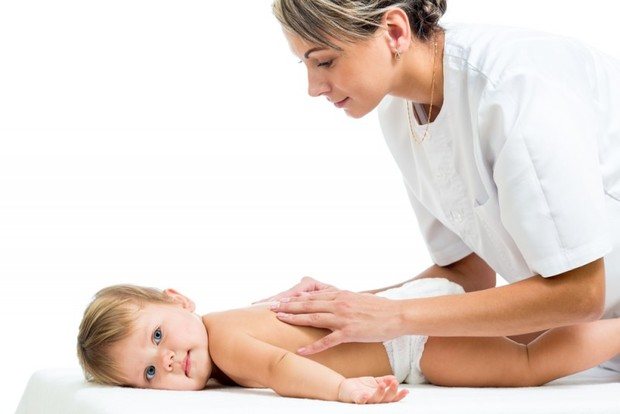
Help with cough
- Inhalation of mineral non-carbonated alkaline water or a special saline solution will relieve cough.
When the baby feels better, he should be given warm milk or water. All other therapeutic actions will be carried out by the doctor.
Health care
In a situation where a child vomits when coughing, syrups will not help (and can even cause harm). Treatment agents should be selected by a pediatrician. You will first need an examination, the purpose of which is to establish the cause that caused this cough:
- visual examination of the baby;
- listening to the chest;
- study of the nasal sinuses;
- sputum culture;
- blood analysis;
- allergy tests.
If the diagnosis is questionable, radiography and ultrasound examination are prescribed. You may also need to consult an ENT doctor, pulmonologist, allergist, or cardiologist.
Having made a diagnosis, the pediatrician prescribes medications according to each specific case. This will eliminate the root cause of the attacks. Therefore, in parallel with antitussive drugs, antibiotics, heart medications, antihistamines, etc. can be prescribed.
ethnoscience
After the doctor prescribes therapy, in addition to the main treatment, you can use traditional recipes (but not as an alternative). They will help get rid of a strong suffocating cough:
- Herbal teas will make phlegm less viscous and help remove toxins from the body. Young children can brew chamomile, nettle, mint, linden, coltsfoot, adding raspberry jam or dried branches from a berry bush to the drink.

Healing decoction for cough
- A decoction of viburnum helps well, given to the child in the morning and evening. To prepare the drink, pour a liter of boiling water into a glass of berries or flowers and simmer over low heat for 10 minutes.
- A warm infusion of dried mallow and plantain leaves will help your child. 1 tbsp. pour a glass of boiling water over the herbs and leave for 40-60 minutes. and filter. The baby is given a drink 3 times a day, 2 tbsp.
An excellent remedy is black radish juice with honey in a 1:1 ratio, which is given to the little one 1 tsp. every 2 hours. If the baby is predisposed to allergies, this remedy will have to be excluded.
Cough and runny nose
At a very young age, children do not know how to clean their nasal passages well on their own, and mucous secretions flow down the back wall of the throat, causing irritation. The body reacts to this with a cough reflex, accompanied by the urge to vomit. At the same time, a runny nose may not be noticeable externally, especially if the disease is associated with severe swelling, when snot simply cannot come out through the nose.
To eliminate vomiting in children when coughing, provoked by this reason, it is necessary to use drugs against the common cold. True, this should be done only after the child has been examined by a pediatrician and the assumption has been confirmed that the gag reflex is caused by a runny nose. The doctor will also help you choose a safe and effective medication that can be used at a tender age.
Therapy methods
If a child vomits when coughing, paroxysmal in nature, it is necessary to provide him with first aid and call a doctor. The baby must be protected from the possibility of choking on vomit; the risk is especially high in one-year-old children. To do this, you need to sit the baby down and bend forward a little. When the vomiting stops, the child needs to be washed and given cool, clean water to drink.
Since mucus accumulates in the respiratory tract when coughing, it is recommended to use medications that promote expectoration and thin the mucus. As a rule, this problem is characteristic of bronchitis. Thanks to expectorant drugs, mucus thins, resulting in easier elimination. The cough will not completely disappear, but it will be much easier and the baby will no longer have the urge to vomit.
Among the popular expectorant medications that will help get rid of symptoms are the following:
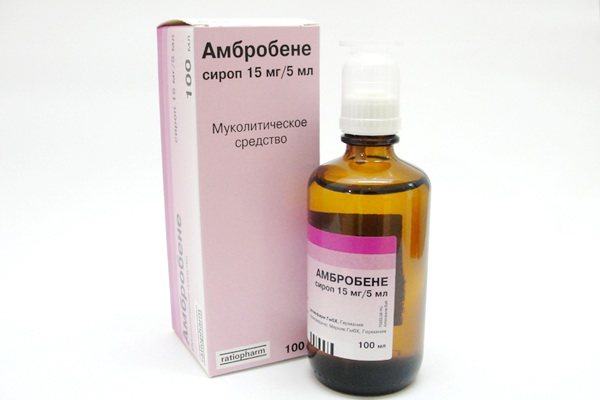
- Ambrobene;
- ACC;
- Gerbion;
- Fluditek.
To quickly get rid of cough, it is recommended to use drugs that block this reflex. Such drugs include Sinekod and Omnitus. They are recommended for use in the presence of pathologies such as pharyngitis, tonsillitis and laryngitis, as well as cough, which is caused by irritation in the larynx.
You can also get rid of vomiting when coughing with the help of folk remedies; they are allowed to be used by everyone except children under one year of age and allergy sufferers:
- Warm cow's milk - 200 ml, the child should drink a glass of milk in small sips (even if the baby has no desire). The drink has a calming effect on the mucous membrane of the throat.
- Honey - one tablespoon. The product must be dissolved slowly in the mouth. Honey helps soften the larynx and has an anti-inflammatory effect.

- A small piece of butter, which needs to be slowly dissolved in the mouth, will have a coating effect on the throat, relieving irritation.
- Chamomile decoction helps to dull coughing attacks and at the same time fights inflammation.
- Thanks to mint-flavored lollipops, it eliminates irritation and makes breathing easier.
The regimen and methods of treating vomiting when coughing in a child are subject to individual selection, and the algorithm of actions directly depends on the cause of the cough.
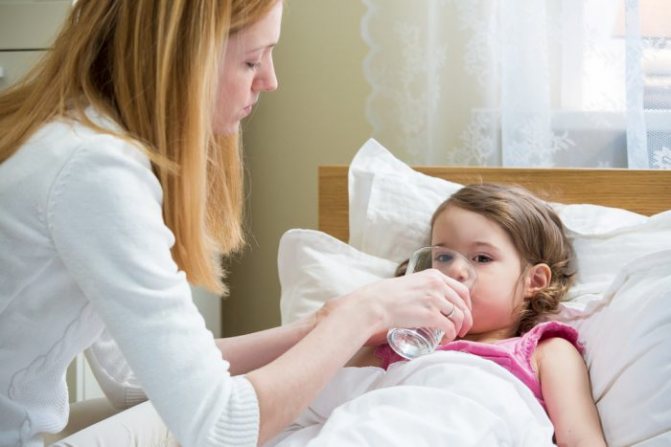
If you have a viral infection, you can be treated simply by following the regimen. It includes drinking large amounts of fluid, bed rest, and constant ventilation of the room where the patient is located. If you have a strong immune system, the disease itself will disappear after a week. If the child is in infancy and his immune system is not yet able to cope with diseases of this type, the use of antiviral drugs and immunomodulators is prescribed: Rimantadine, Cytovir (a drug in the form of a suspension), Aflubin.
For bacterial diseases, you cannot do without the use of antibiotics. If you stop taking medications, there is a possibility that the disease will become chronic. Penicillin and Amoxiclav are considered popular drugs of this type. Antibacterial agents are prescribed by a doctor after testing to detect an allergic reaction to the components present in the composition of the products.
Inhalations are very effective in treating cough. Alkaline solutions (from soda or mineral water), remedies for relieving spasms and dilation of the bronchi (Berodual), and salt solutions act as medicines. If there is such a need, then both antiviral and antibacterial drugs can be used for inhalation - Relenza, Miramistin.
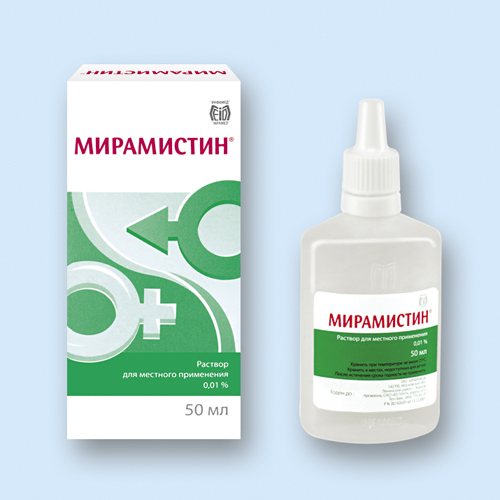
Allergies and cough
Allergies are often accompanied by various unpleasant, severe symptoms, including runny nose, cough and gag reflex. Many children suffer from nasal congestion, and medications to relieve a runny nose do not show any effectiveness in this situation. Real benefits can come from special medications developed against allergic reactions - the antihistamine group.
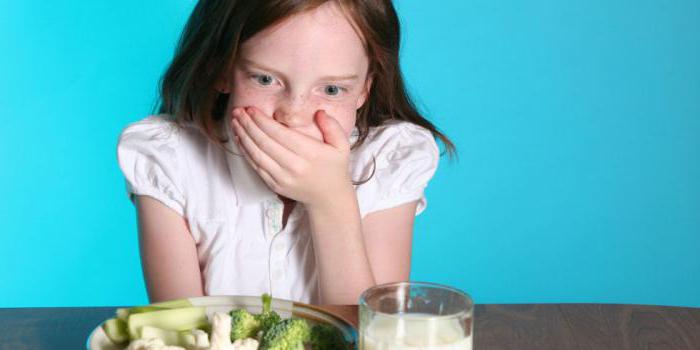
In young children, it is usually impossible to take such drugs, so before choosing treatment, you should consult a doctor. Often the only reasonable option is to find out which allergen provoked the body’s reaction and exclude it from the baby’s daily routine. Preventing contact with the allergy-causing compound or substance in most cases gives the best effect, and the symptoms resolve quickly enough.
Foreign body and cough
Sometimes vomiting in children when coughing is caused by the fact that a foreign body has entered the body. Children are the most curious participants in human society, and they want to taste everything. Often, elements of absorbed food and small parts of toys end up in the respiratory tract, where they get stuck. In such a situation, a cough reflex develops as an attempt by the body to cleanse itself of foreign matter. These attacks may well be accompanied by vomiting.
Usually this is the reason, if the child’s condition has deteriorated sharply, without any assumptions as to why this could happen, and also in the absence of prerequisites such as a cold or fever. To prevent undesirable serious consequences, it is necessary to urgently seek help from specialists. If foreign objects remain in the nose and larynx for a long time, this will cause tissue damage. In the most unfavorable development of the situation, the respiratory tract is completely blocked, which provokes suffocation, leads to a lack of oxygen in the organs and tissues of the body, and in some cases can even provoke death.
Dangers and prevention of night cough with vomiting in children
If your baby has a paroxysm of coughing and vomiting, you should immediately contact a specialist, as the following complications may develop:
- Muscle pain due to constant hypertonicity (pain occurs in the chest and peritoneum).
- Rupture of small blood vessels in the respiratory organs (risk of bleeding).
- Increased pressure (creates additional stress on the heart).
- Pneumothorax (occurs in the presence of bronchial asthma).
- Atelectasis (in this case, the lobe of the lung decreases, part of the organ simply stops functioning).
In order to avoid coughing or other pathologies that provoke such a symptom, the following preventive measures must be observed:
- Give preference to walks in the fresh air in parks and forest areas.
- Ventilate all living areas every day, especially those in which children live. However, you should not create a draft, as this can cause a coughing attack and vomiting.
- Maintain the optimal air temperature in the room. If it is too hot, pathogenic microflora will multiply much faster. At the same time, the baby’s well-being will worsen. It is impossible for the house to be warmer than 23 degrees.
- Constantly humidify the air. The best indicator is 55-65%.
- Every day it is necessary to maintain the baby’s personal hygiene, and after bathing there should be no drafts in the house.
- Dehydration should not be allowed, especially if the patient has a high temperature. He should be given plenty of warm fluids.
- Treat any inflammatory and infectious processes in a timely manner.
- Ensure proper daily routine.
- Temper the child, do gymnastics and exercises with him.
- Enrich your baby's diet with fruits, berries, and other healthy foods.
Parents are always obliged to closely monitor the child’s condition and, if necessary, consult a doctor. A cough aggravated by vomiting should alert adults. Self-medication will only worsen the patient's condition.
There are many options!
There are a huge number of known causes of vomiting in children when coughing. It is very unlikely to determine on your own what is wrong without special education and the ability to conduct a series of tests. It is known that cough can be accompanied by a gag reflex in pneumonia, which requires urgent medical intervention. Such symptoms are also typical for asthma, croup, and pharyngitis. In some cases, the symptom indicates serious violations in the integrity of organ tissue. In this way, disorders of the gastrointestinal tract and respiratory system can manifest themselves. In addition, vomiting in children when coughing may indicate infection with the tuberculosis bacillus.
To determine what’s wrong and take the right measures to eliminate the cause, you need to seek help from a specialist who has the knowledge, equipment, and other capabilities to fully examine the child’s body. It is the responsibility of parents to seek qualified help in a timely manner. In this case, relief of the condition will be accompanied by the most effective measures against the real root cause of the symptom.
Preventive actions
To prevent coughing accompanied by vomiting, follow the rules.
- Ventilate the room, but do not create drafts. Regular flow and change of air will prevent the accumulation of pathogenic organisms in one place.
- Maintain the correct temperature in the room where the sick child is. Many parents mistakenly try to warm the room to speed up the baby’s recovery. Thus, they only make things worse, since viruses multiply rapidly at temperatures above 23 degrees.
- Humidify the air. Optimal conditions for a sick child are air humidity in the range of 55-65%. In a dry room, bacteria quickly attack healthy cells, contributing to the progression of the disease and its complications.
- Give the baby a bath. Until recently, it was believed that water procedures were prohibited for a coughing baby. In fact, drafts after swimming are unacceptable. While taking a bath, droplets of water and evaporation enter the respiratory tract, which helps to thin thick mucus. The only contraindication for swimming is hyperthermia.
- Drink plenty of fluids. During illness, you need to give your baby more fluids. Let your child drink what he likes. Regular water exchange will speed up the removal of toxins and cleanse the body of bacteria. Drinking also helps thin the mucus.
- Don't delay treatment. Visit the doctor as soon as your child starts coughing. Do not wait until the cough begins to be accompanied by vomiting. If the doctor's prescription does not help within 3-4 days, then seek help again.
When treating cough with vomiting, consider the individual recommendations that the doctor has made for your child. They will be much more effective than generally accepted rules and algorithms of action.
Labored breathing. Cough without stopping. What to do? — Dr. Komarovsky
Dry cough and vomiting
A dry cough is associated with strong muscle tension, which can provoke a gag reflex, since the center responsible for it is located relatively close to the pharynx, and nervous excitement is also transmitted here. Vomiting in this situation does not last long, and after it the cough disappears for a while. Each new attack causes fear in the child, the patient seems weak and feels tired.
There are quite a few causes for dry cough. This symptom can be caused by a variety of infections, viruses that cause respiratory pathologies. When microscopic harmful life forms enter the respiratory tract, it provokes inflammation and the receptors responsible for coughing are activated. In some cases, the cause is inflammation affecting the vocal cords. Often, a dry cough is triggered by an allergic reaction, infection with pathological bacteria or inflammatory processes in the pleura. Such a symptom is known if there is a reverse reflux of food into the oral cavity or esophagus. A dry cough can accompany being in a room with harmful fumes, as well as the consequences of such stay. Finally, this may indicate heart defects, aortic aneurysm. An accurate diagnosis can only be made by a qualified doctor after carefully examining the patient and examining the tests taken.
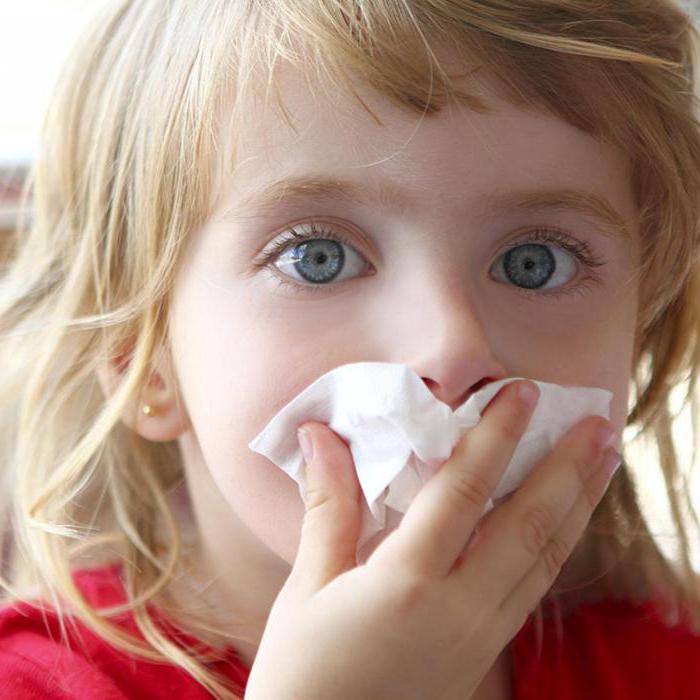
How to help a child with a cough using folk remedies
Folk remedies are an effective auxiliary method of treatment. It is important to remember that some medicinal herbs cause an allergic reaction or worsen an attack with side effects.
Honey and bee products can soften irritated oral mucosa and prevent paroxysmal coughing. To do this, give your child a piece of honeycomb soaked in honey liquid. Make a healthy drink by mixing honey with milk, or adding it to warm tea, linden decoction, or chamomile.
If the child does not have a fever, rub his feet with a warm towel or place dry mustard plasters on his feet. This procedure is done so that the blood rushes to the extremities, easing the swelling of the throat. Remember, steam inhalations when coughing to the point of vomiting are prohibited, as they can cause a new attack.

Compresses improve blood circulation in the lungs and bronchi. As a result, sputum thins out faster and is easier to remove from the body. For this treatment method, mash warm potatoes, wrap them in cloth, and apply them to your back for a few minutes. Wrap your baby up to keep the mixture cool longer. The procedure should not be performed at high temperatures or in the acute stage of the disease.
Night cough and vomiting
Regardless of the cause, cough at night is always stronger than during the day. This is due to the accumulation of mucous secretions during sleep. At the same time, the body does not have the ability to absorb secretions, which irritates the receptors responsible for coughing and activates the reflex. At the same time, blood flow slows down when a person takes a horizontal position, the lungs receive less oxygen, and mucus and phlegm simply cannot be absorbed in a timely manner. The accumulation of these masses generated by mucous tissues leads to severe coughing, often accompanied by a gag reflex.
It is likely that in the daytime, if the child coughs, it practically does not bother him and does not attract attention, but at night the situation becomes very aggravated, severe attacks begin, and breathing is blocked even for short periods of time. Coughing at night is much more difficult than during the day, and getting rid of phlegm requires a very intense effort. This condition is associated with a number of health risks, including the possibility of choking on vomiting fluids. To prevent such a development of the situation, during an attack, adults should be near the child and provide him with all possible assistance.
Causes of this cough
The mucous membrane of the throat reacts to the slightest irritation, and this manifests itself as a cough. If it is repeated and does not bring relief, the little one may vomit. This is due to the physiological characteristics of the baby. In his brain, the centers of coughing and vomiting are located nearby, so the excitement of one automatically affects the neighboring one.
Teeth can become an irritant - when they erupt, copious amounts of saliva are released and flow into the throat. Babies under one year old do not yet know how to cough well, and the vomiting receptors located at the base of the uvula respond to reflex manipulations.
There are other reasons why a child coughs to the point of vomiting. The more serious the stimulus, the stronger the reflex will manifest itself.
Causes of vomiting cough
| Factor | Peculiarities |
| Allergy | Characterized by swelling of the mucous membrane, soreness, itching |
| Inflammation of the nasal sinuses (sinusitis, rhinitis) | Snot flows down the back of the larynx and affects the vomiting receptors |
| Bronchitis | It starts with a dry cough, then sputum appears. The disease is accompanied by shortness of breath |
| Whooping cough | It is characterized by a special debilitating “barking” cough that can continue without interruption for a long period. |
| Asthma bronchial | Severe attacks usually occur in a supine position |
| Infestations | One of the stages of helminth development occurs in the lungs. Their presence provokes a dry cough |
| Foreign body | A foreign object causes heavy breathing and is a strong irritant. Associated symptoms include suffocation and wheezing. |
If there are heart pathologies, this can also provoke a cough with a gag reflex in the child. Even prolonged crying can cause a similar reaction. Snot flowing into the nasopharynx will also affect the vomiting receptors.
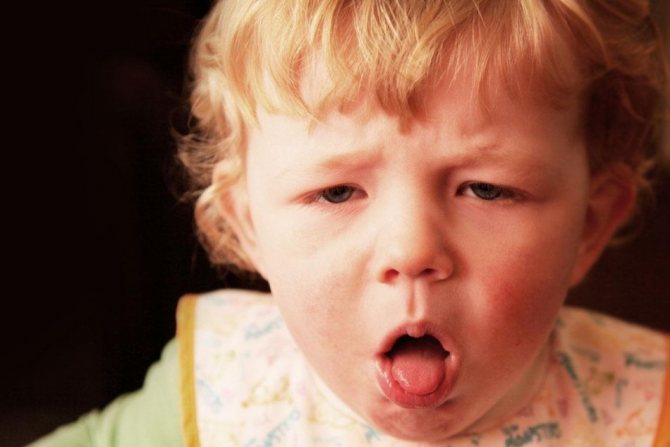
The child has whooping cough
Why more often at night
It is easier for a child in a sitting position to cope with a cough. Even if the little one is lying down, during the day his attacks are not as strong as at night. While awake, the baby moves its arms and legs, can roll over from back to stomach, and crawls. Such manipulations help the phlegm to pass away more easily.
At night, the situation is different - most of the time the little one sleeps, being motionless. Therefore, mucus clogs the larynx and flows down the trachea and esophagus, causing a suffocating cough.
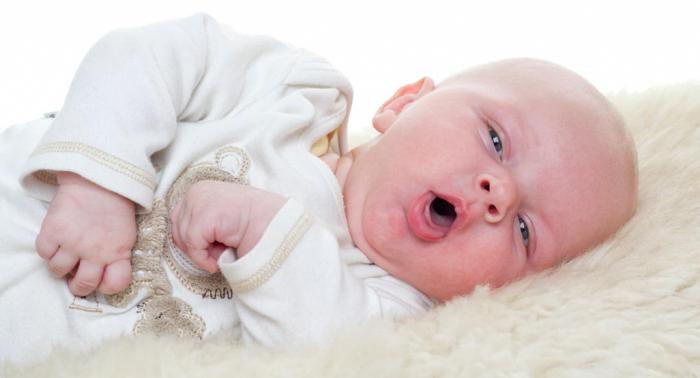
The baby is suffering from a severe cough
Note! With a stuffy nose, the little one has to breathe through the mouth, which causes the mucous membrane of the larynx to dry out and the throat to feel sore. The baby begins to have a severe attack of dry cough.
What else should you pay attention to?
It is known that vomiting in children when coughing can accompany prolonged stay in a cool room. In particular, if a child sleeps in a cold room with dry air, this causes an increased likelihood of coughing. Dry air provokes irritation of the mucous membrane, which activates cough receptors.
If the cough is caused by whooping cough, it also becomes much stronger at night, and the attacks are more severe than during the daytime. The cough is dry, literally tearing and tormenting the child and preventing him from sleeping. But if coughing attacks, including those accompanied by vomiting, appear in the morning, this signals asthma. Often, when inhaling, the child makes a characteristic whistle.
Attention to all aspects
In some cases, vomiting in children when coughing is caused by teething. This process is accompanied by copious salivation, and at night, during sleep, the swallowing reflex does not work, so saliva accumulates in the laryngeal area. This activates cough receptors and provokes an attack.
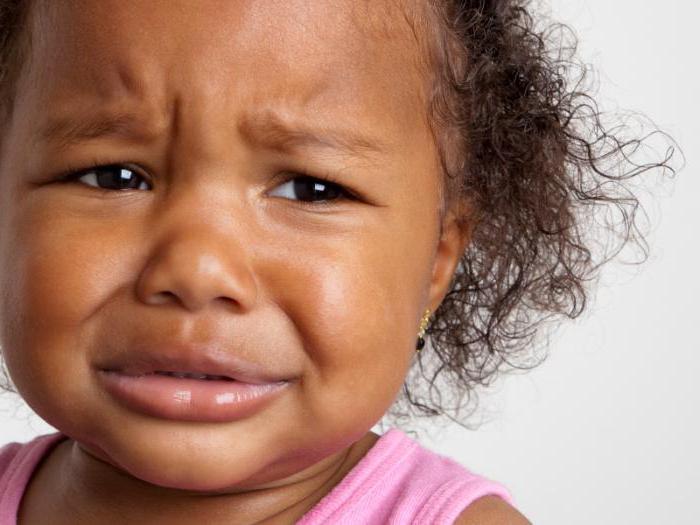
If the teeth have already erupted and the child is much older, then the horizontal position can provoke improper functioning of the digestive system, when products fall back into the esophagus, into the respiratory system. This is also accompanied by vomiting. You should not discount the possible infestation of the bed with parasites, such as bedbugs. Severe vomiting in children when coughing can be caused by chemicals, including powders used in washing bedding.
